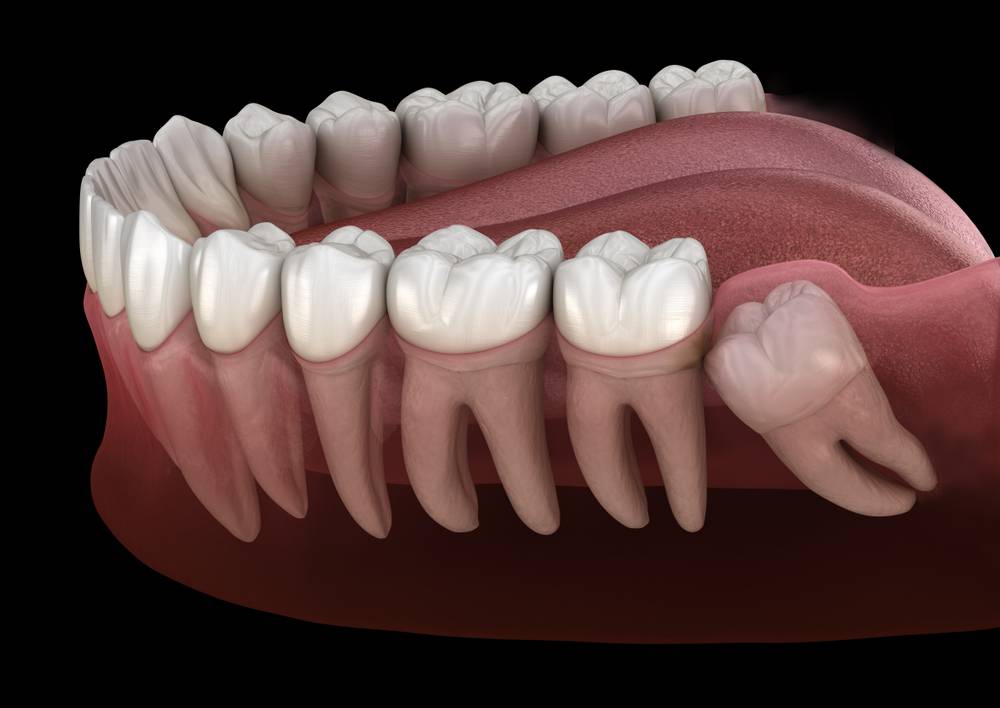Why We Have Wisdom Teeth
Since wisdom teeth removal is one of the most common dental procedures, you may be wondering why we even have wisdom teeth in the first place. Once essential for an early human diet, wisdom teeth are thought to be no longer necessary. Even though we seem to have evolved past needing them, our wisdom teeth continue to grow.
What Are Wisdom Teeth?
Wisdom teeth are the third set of molars most people develop between the ages of 17 and 21. From infancy to early adolescence, humans develop their first set of teeth, lose them, and get a whole new set again. There’s a brief pause, and then the final set of teeth, wisdom teeth, emerge.
Typically, there’s not enough space in the mouth to accommodate your third set of molars. To avoid further health complications, most patients will have their wisdom teeth extracted.

Reasons Your Wisdom Teeth May Need to Be Removed
Not everyone will have to have their wisdom teeth removed and not everyone will have all (or any) of their wisdom teeth grow in. But since most wisdom teeth emerge after the jaw stops growing, the majority of people with wisdom teeth will experience issues.
Common problems associated with wisdom teeth include:
- Overly crowded teeth
- Crooked teeth
- Jaw pain
- Sideways growth
- Increased tooth decay
- Cysts under the gums
If any of the above issues occur, the American Dental Association recommends wisdom teeth removal. Fortunately, the procedure is fairly simple.
The Wisdom Tooth Removal Process
As soon as your wisdom teeth come in, you should be evaluated by our Scottsdale dentist, Dr. Call. Patients who get their wisdom teeth removed at a younger age, before the roots and bone have fully formed, tend to heal better from surgery.
The procedure for wisdom teeth removal takes less than an hour, and with dental sedation, you shouldn’t feel any pain or discomfort. The steps for a typical procedure are as follows:
- Sedation. You will be given IV sedation for your comfort.
- Numbing. Next, Dr. Call will numb the wisdom teeth and the surrounding tissues with a local anesthetic.
- Tissue removal. Next, any gum tissue that covers the area where the wisdom teeth are located will be removed.
- Bone removal. If your wisdom tooth is impacted, it could be fully or partially covered with bone. In that case, a high-speed handpiece is used to drill through and remove the bone covering the tooth.
- Tooth removal. After loosening and sectioning off each wisdom tooth, they’re removed with special surgical instruments.
- Stitches. Once the teeth are gone, stitches may be required to close up the area. This is especially common with impacted wisdom teeth.
Before your surgery, Dr. Call and our team will go over all aftercare instructions to make sure you have a smooth, easy recovery process. How long recovery takes and how much time you’ll need to take off work will depend on the severity of your procedure. While it’s best to take it easy for at least three days, the majority of our patients feel much better after less than a week.
Frequently Asked Questions
Technically, unless they’re severely impacted and infected, you don’t have to have your wisdom teeth removed. However, failure to do so may result in major dental problems or health issues down the road.
The removal of wisdom teeth isn’t a cosmetic dental procedure, so most dental plans should cover it. However, your level of coverage will depend on your carrier. Talk to our team about your options before you schedule your procedure.
Are Your Wisdom Teeth Giving You Trouble?
Sore or impacted wisdom teeth can lead to many other health concerns. Therefore, if your wisdom teeth are giving you trouble, it’s best to come to see us at Reimage Dental Studio right away. Simply call our Scottsdale, AZ dental office at (480) 443-3552 and we’ll get you scheduled as soon as possible.
